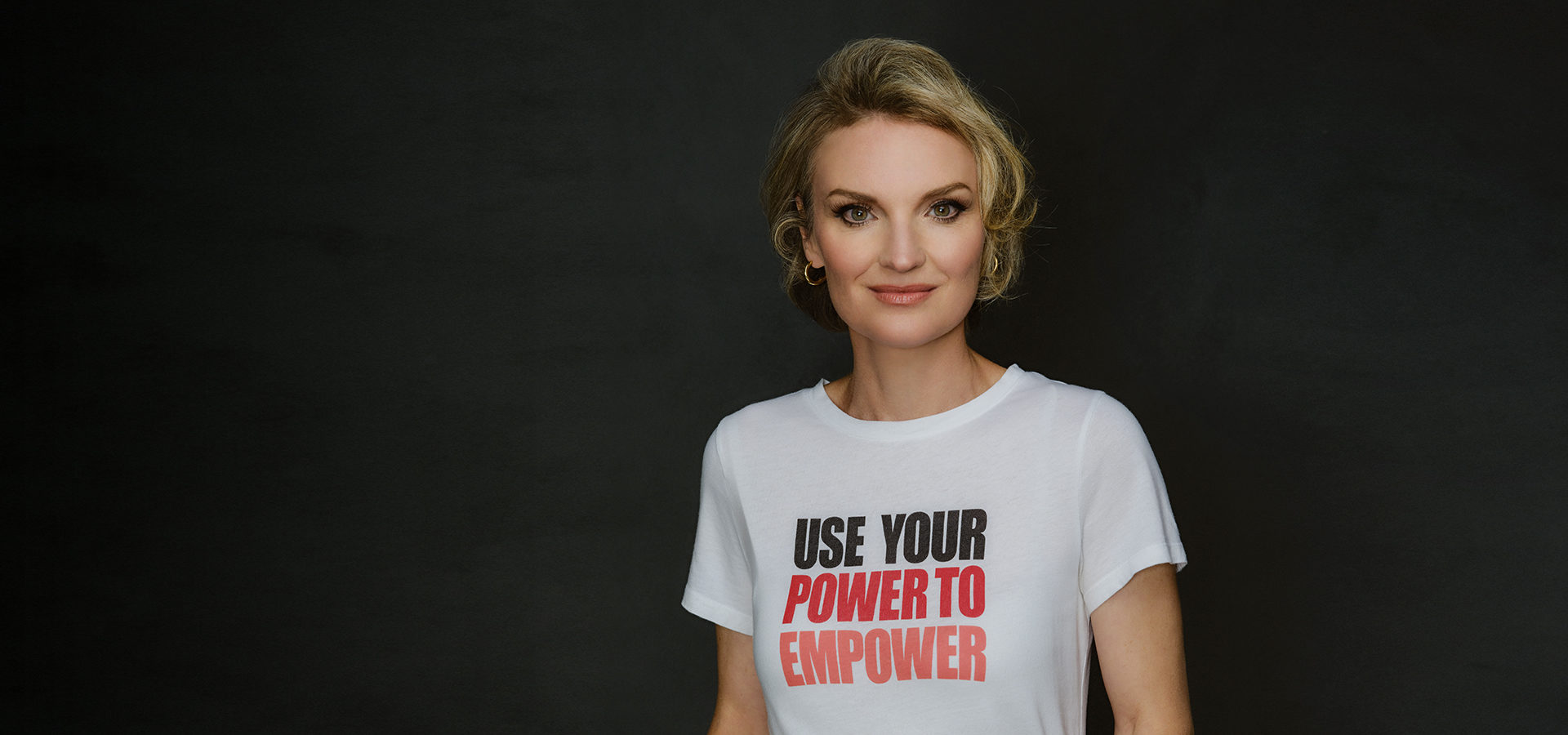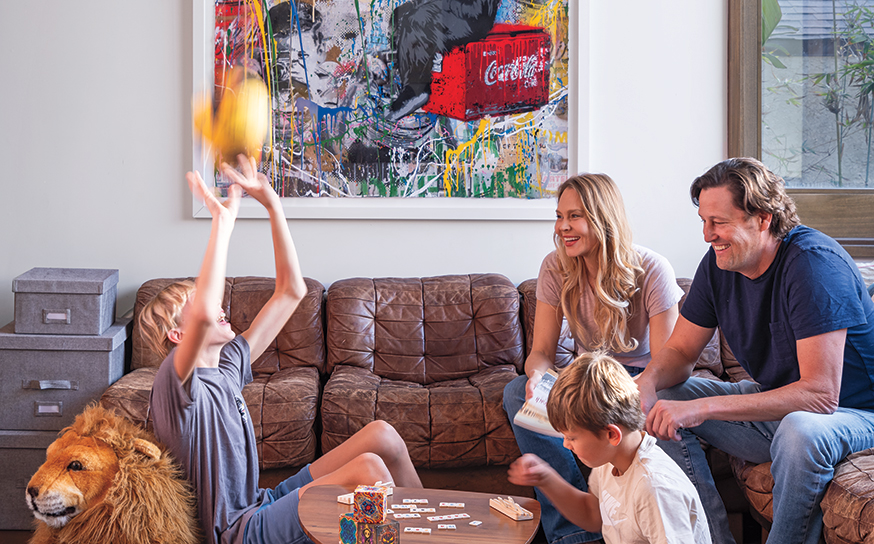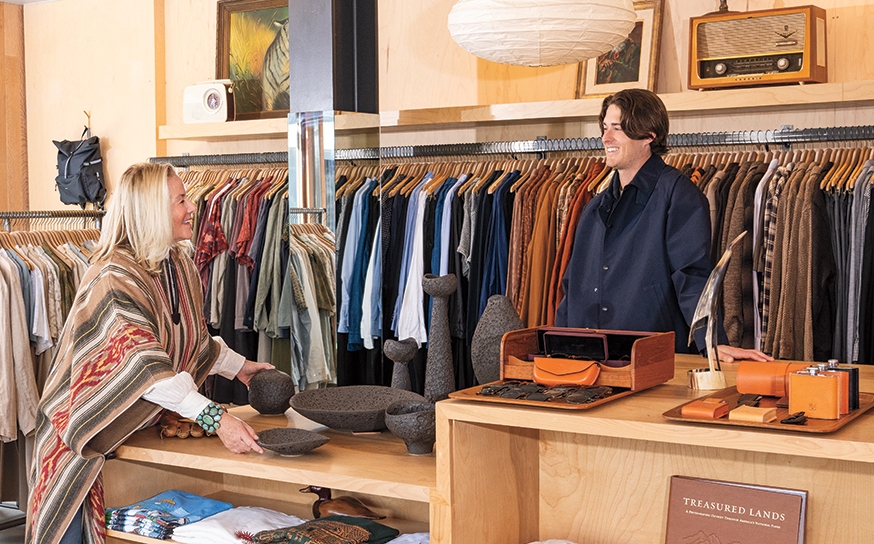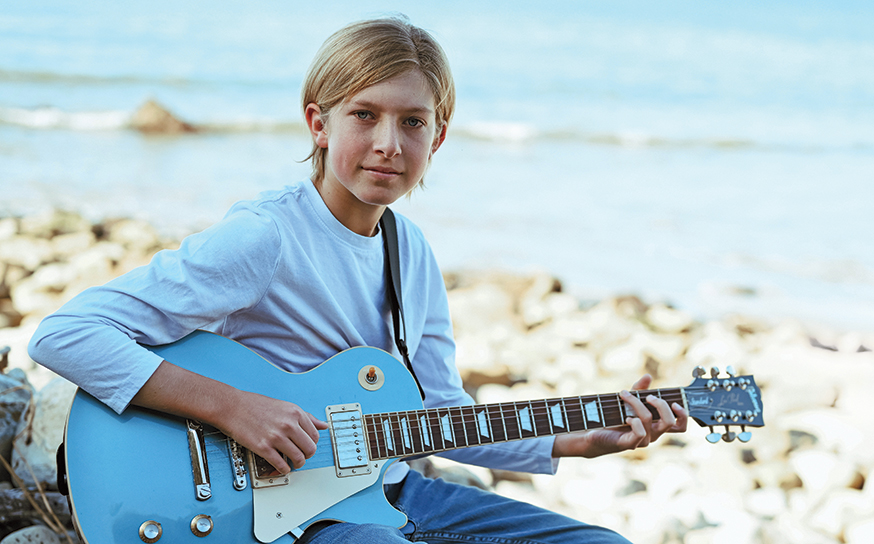Trailblazer Alyse Nelson Invests Time and Passion Empowering Women
Be heard.
- CategoryPeople
- Written byTanya Monaghan
- Photographed byMichael Becker
Alyse Nelson’s mom, Mary, often tells the story about the time her daughter found a doll with no fingers at a garage sale. “She was dirty, and one of the eyes didn’t open,” remembers Alyse. “I picked her up and said, ‘I need to have her.’ I paid for it and carried that doll around like a baby. I said to myself, ‘I’m going to nurture and love this baby that everyone forgot.’”

Sue Molina, Amanda Gorman, Alyse Nelson, Beth Brooke-Marciniak
A young Alyse understood her capacity for empathy, even if she didn’t fully grasp how critical that value would guide her leadership later in life. A passionate activist, today Alyse is the president and CEO of Vital Voices Global Partnership, an organization that invests in women leaders solving the world’s greatest challenges—from gender-based violence to the climate crisis and economic inequities.
Founded in 1997, Vital Voices offers a space for women to be heard, anchored by a diverse board of directors that includes actress Sally Field, poet Amanda Gorman and fashion designer Diane Von Furstenberg. Believing that women are essential to progress in their own communities and around the world, Vital Voices members call themselves “venture catalysts”—finding those with a daring vision for change and partnering with them to make that vision a reality.
“We need leaders today with authenticity and personal experiences, and those experiences lead them to take action—to step up to right the wrong. That’s the most authentic form of real leadership,” explains Alyse. “And so we talk a lot about a voice. It’s about this concept of a driving force or a sense of mission. And mine has always been to use your power to empower, use your voice to give voice.”
After female education activist and Nobel Prize laureate Malala Yousafzai was injured in an assassination attempt at age 15, Vital Voices incubated her foundation for the first nine months until she was well enough to run it and give her speech to the U.N. “To be able to partner with people like her is incredibly rewarding,” shares Alyse. “She signed and gave us a duplicate copy of her Nobel Prize. It’s those moments that make me realize that we have not yet reached our end, but we are on the path. There are so many more women to tap.”
Far from the world of freedom fighters and Nobel Prizes, I first met Alyse in fifth grade at Lunada Bay School in Palos Verdes, where we became fast friends. Her mother was our Girl Scout troop leader. I hadn’t met a mom quite like Mary Nelson before—independent, strong and remarkable. Nothing seemed to faze her.
Comfortable in nature, she didn’t depend on anyone else to do the dirty work. She could light a fire in the wilderness and guide a group of young, unruly girls with relative ease. Mary modeled many of the strong attributes so clearly evident in Alyse today. Although very different in personality, they both exude a quiet strength and remain unapologetically and authentically themselves.
Although Alyse now resides with her two children and husband Hardin Lang in Washington, D.C., for the past seven months during the pandemic she cocooned with her parents and her own little family of four in the house where she grew up in Palos Verdes. “One of the things that I’ve always believed and I feel blessed by is that when you come from both a family that’s extremely supportive of you and your dreams, but also a community that nurtures those dreams and provides a safe space, you can really have wings,” she says. “Because you always know there’s a safe place to land.”
The Nelson family traveled frequently during Alyse’s childhood. Mary, the ultimate adventurer, started surfing at age 50 and can still be found catching waves today at 78. Alyse nostalgically reminisces, “She took us on camping trips with Girl Scouts. She even took us to a Grateful Dead concert. My mother was very much about being part of the local community [when we traveled] and getting to know it. We’d stay in people’s homes instead of hotels and become immersed into that culture.”
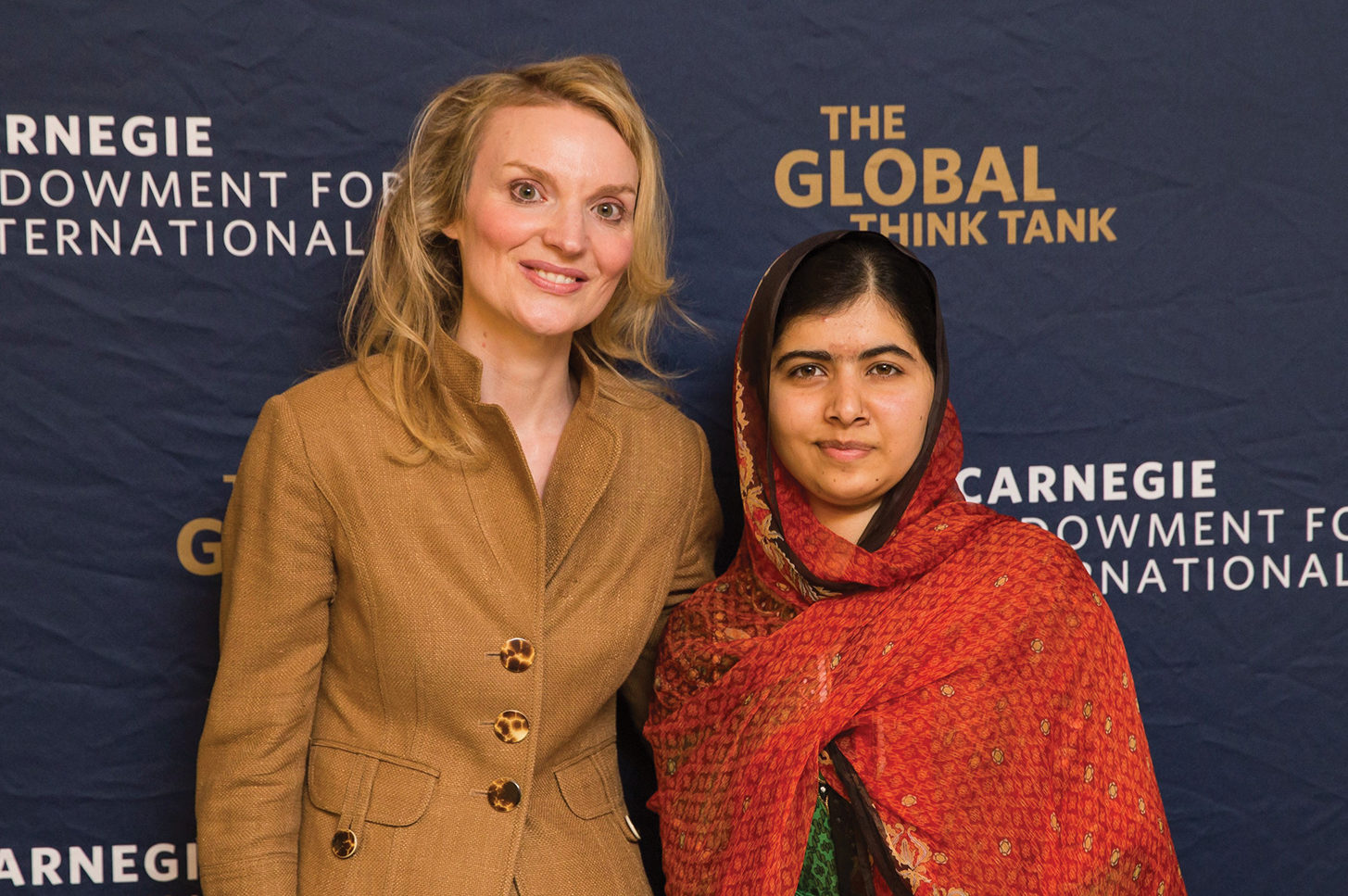
Alyse Nelson and Malala Yousafzai
She describes her dad, John Nelson, as having an incredible work ethic and an unquenchable sense of curiosity. “He was one of the early pioneers in technology and just had that mind that is always asking questions. Having parents who believed in letting their children live their passion set me on my path from a very early age.”
When she was a senior in high school, Alyse coached kids in theatre arts at an inner-city middle school where her mom taught. “I saw the power of drama to transform these kids’ self-esteem and give them purpose,” she remembers. “I heard a lot of kids say, ‘No one’s ever told me I’m good at anything.’ It was a window into a world out there where people didn’t have the support that I had. And that world was only 20 miles away. I realized the upbringing I have, the family I have, is my greatest fortune. They could give me love and support because they didn’t have to worry about security or putting food on the table.”
At Emerson College, Alyse delved deeper into women’s issues. She set up an organization called the Inner Collegiate Communications Network to bring women together who were interested in the field of communications. She sought to link these students with more established women for mentorships and internships. While building this organization, she discovered the United Nations Fourth World Conference on Women, which was taking place in 1995 in Beijing. Alyse felt a deep compulsion to go.
The event would take place not long after the Tiananmen Square student-led protests of 1989 when the government declared martial law and killed thousands of demonstrators. At first the Chinese government didn’t realize that the women traveling to the conference were activists for women’s rights. Once they did, the organizing committee began limiting the numbers and making it as difficult as possible to attend. After frequent visits to the Chinese consulate in Pasadena—faking an itinerary to get a visa and enduring a flight with four stops over four days—the 21-year-old finally made it.
Alyse had no idea how she was going to get into the convention. On one of the flights to Beijing, she sat next to Gertrude Fester—a well-known feminist from South Africa—who took Alyse under her wing. Via a long string of serendipitous events, Alyse miraculously made her way into the convention along with 55,000 women activists.
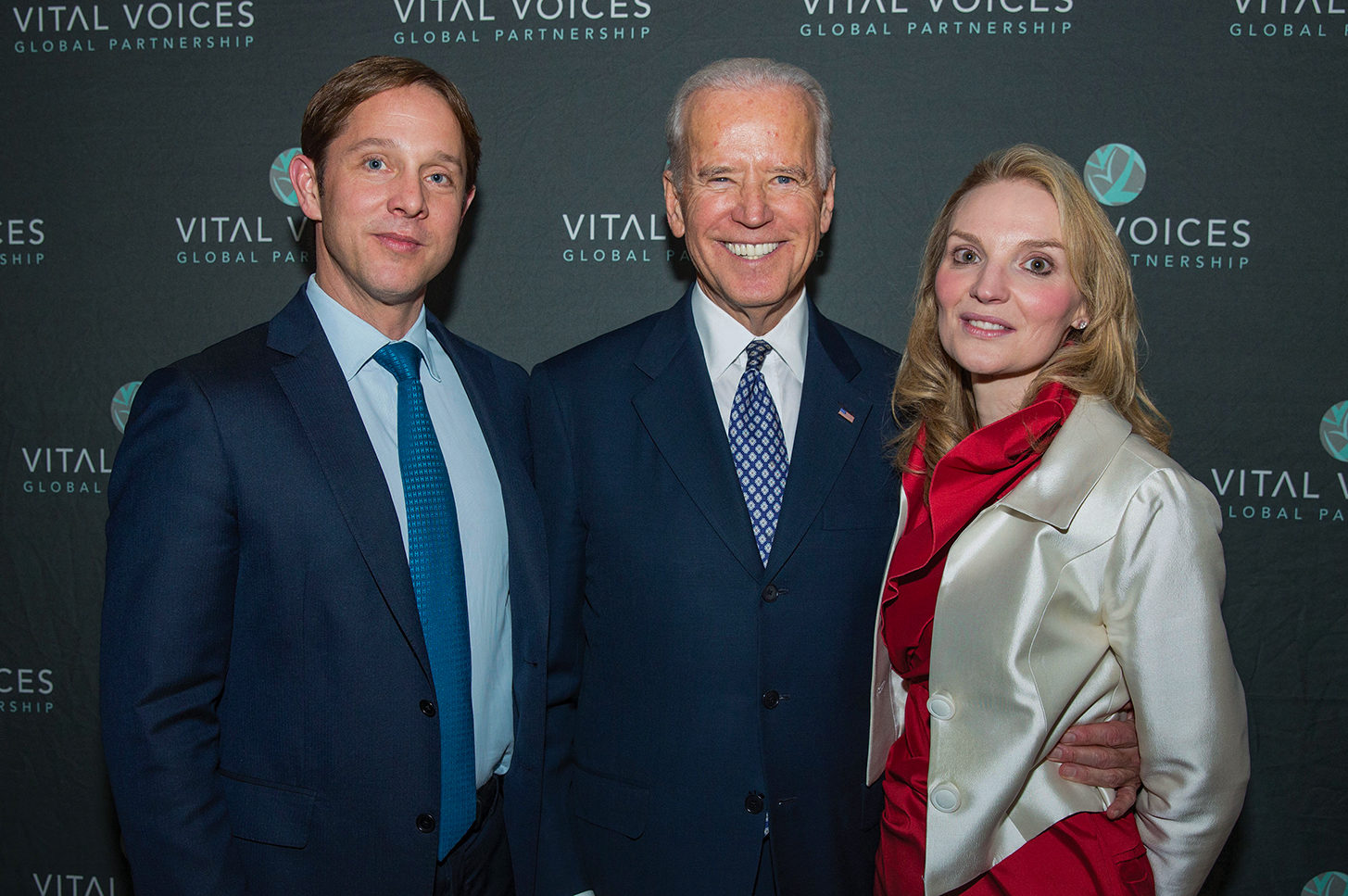
Alyse and her husband, Hardin Lang, with President Joe Biden
The convention was set up like a tented city where every tent had a different theme and attendees could visit to listen to the discussions. There were hundreds of venues and people from all around the world speaking on issues ranging from women’s sports and education to human trafficking.
The activists were housed in prison-style barracks with three bunk beds per room and cold showers. They put all the African women in one set of buildings, all the Chinese or Asian women in a different place and Americans in another. Alyse was placed in the “wrong” set of buildings because she took one of Gertrude’s friend’s spots. She laughs, “I was the only American girl in with all the African women. It was the best.”
At the time of the conference, Bill Clinton was up for reelection, and Hillary Clinton was determined to go and speak in Beijing. She received plenty of pushback from her husband’s administration to just make nice and not get involved in policy issues or ruffle feathers.
But Hillary knew these world conferences held major historical significance in the progress on policy issues, and she was not going to sit back and miss being with 55,000 female activists from around the world. She made her way from India to deliver a now-famous speech on women’s rights and human rights, calling out the Chinese government for killing girls because of their gender.
Alyse recalls the life-changing moment when she heard Hillary speak on the last day of the conference. “You could hear a pin drop,” she remembers. “Here was a woman who didn’t really have the formal job title that allowed her to go to China and give this speech. But she did. It became a call to action for a generation of the global women’s movement.”
Those 10 days in Beijing proved truly transformative for Alyse. She decided to reach out to other young women at her university, tell the story and raise awareness. She used her power to empower and her voice to amplify other voices. That became her mantra and the driving force of her life.
She held a gathering at Emerson and invited people from the U.N., the White House and others who had gone to the conference to talk about the meaning and importance of the women’s movement around the world. Theresa Loar, head of the President’s Interagency Council on Women, attended as a representative of the White House. Impressed with Alyse’s drive and ability to bring young people together and generate interest in human rights issues, Theresa offered Alyse an internship at the White House.
On her first day, Alyse walked through the White House doors and saw a photo of Hillary giving the influential speech at the women’s conference. She took that as a sign that she’d found her place and worked tirelessly to prove herself.
“I was afraid to go to the bathroom,” she says. “I didn’t want to miss anything. I ate lunch at my desk. I was always there before anybody was there. I waited until the last person left before I left. I was so excited to be there and so deeply wanted to get a job there. My goal was to learn everything.”
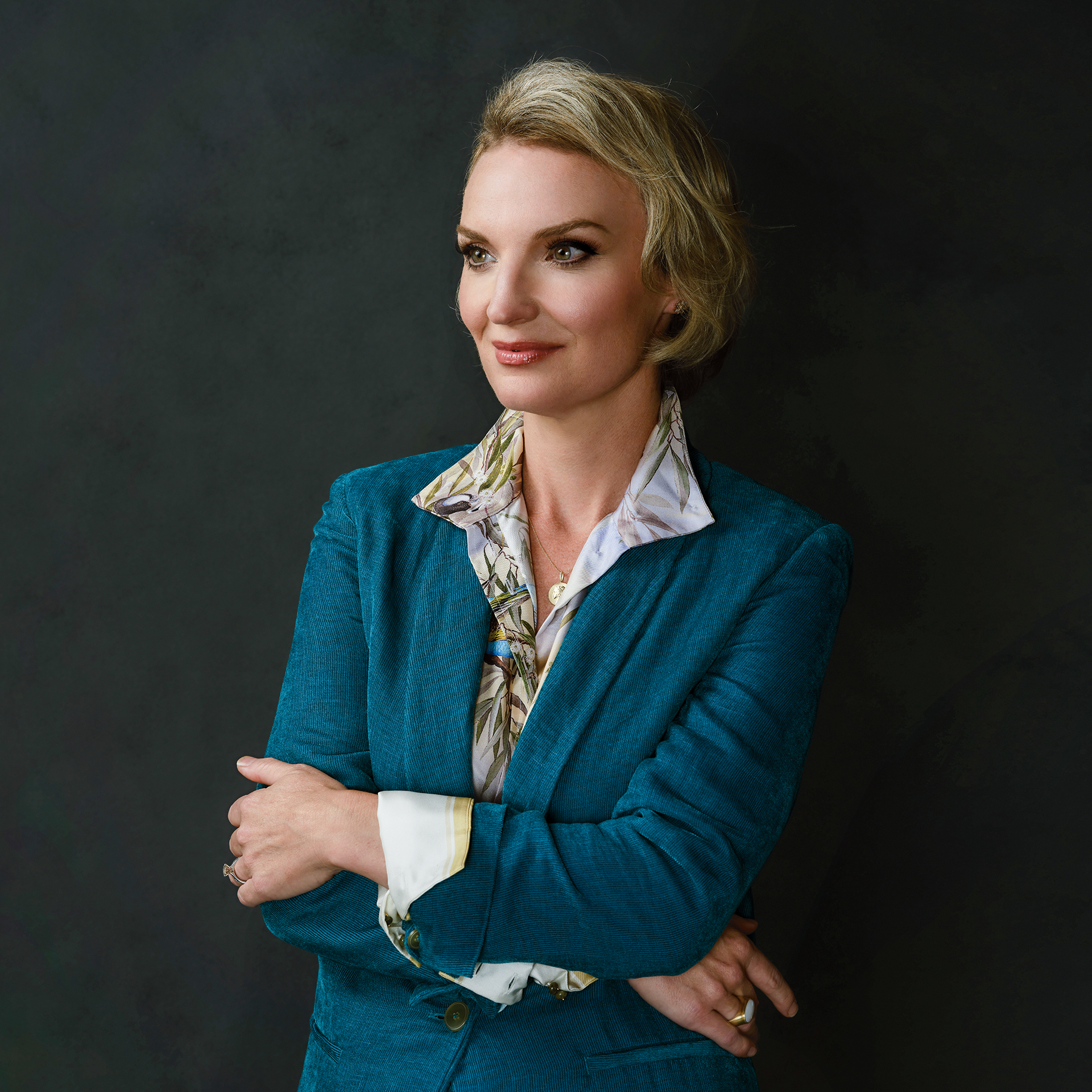
“We need leaders today with authenticity and personal experiences, and those experiences lead them to take action—to step up to right the wrong. That’s the most authentic form of real leadership.”
When Theresa moved to the state department, she asked Alyse to join her. It was an exciting time. As Alyse explains, “We were sitting at the nexus between Hillary Clinton and Secretary of State Madeleine Albright at a moment where these two women were working to integrate women’s issues into the mainstream of American foreign policy. I cannot tell you how exciting it was.”
At the beginning of 1997, an ambassador named Swanee Hunt came to town and changed everything. She was known as a total maverick, working on women’s issues in many countries. She planned a meeting with Theresa and others, and Theresa asked Alyse to go to the meeting to take notes. Swanee was setting up a conference bringing together women leaders, and during that meeting she asked Alyse to be the point of contact in Theresa’s office.
That became the first Vital Voices conference, bringing together 300 women leaders with the purpose of giving them visibility and credibility. Hillary Clinton signed on as a speaker. The first conference was planned as a one-off, but fortunately for Alyse more women around the world began calling her office in need of Vital Voices to come to their communities. She not only kept her job as contact person, but her role evolved into finding incredible women and traveling the world to recruit the ones whom Hillary was going to meet with.
People recognized the critical role that women play at the highest levels. It wasn’t just about what’s fair or what’s right; it was about what’s smart for economies and democracies.
In 2012 Alyse wrote a book about the Vital Voices leadership model. It struck her that despite our differences—from culture to socioeconomic status to religion and language—there were core elements that each phenomenal woman leader brought first.
“It’s that driving force. That motivation is there to right the wrong that they personally were impacted by. And then from there, it’s that empathy—being able to understand the people who you’re leading,” she says. “I’m not a leader because I’m the person on high. I’m the person below pushing everybody else up, listening more than talking at them. I firmly believe in searching the world for women who have a daring vision for change—women like Amanda Gorman and Malala. We don’t ever step back from investing in them. We are always there. And because we invest in them as individuals, there’s great loyalty. That network has now grown to 18,000 women across 184 countries.”
Alyse believes her entire career has built up to this moment—when the world finally realizes that investing in women is not only the right thing but the smart thing to do. “Diversity only makes us stronger,” she says. “Now obviously there’s also a great tide against that. But I think we’re at a moment where there are enough people pushing in the right direction that we can really make change.”






